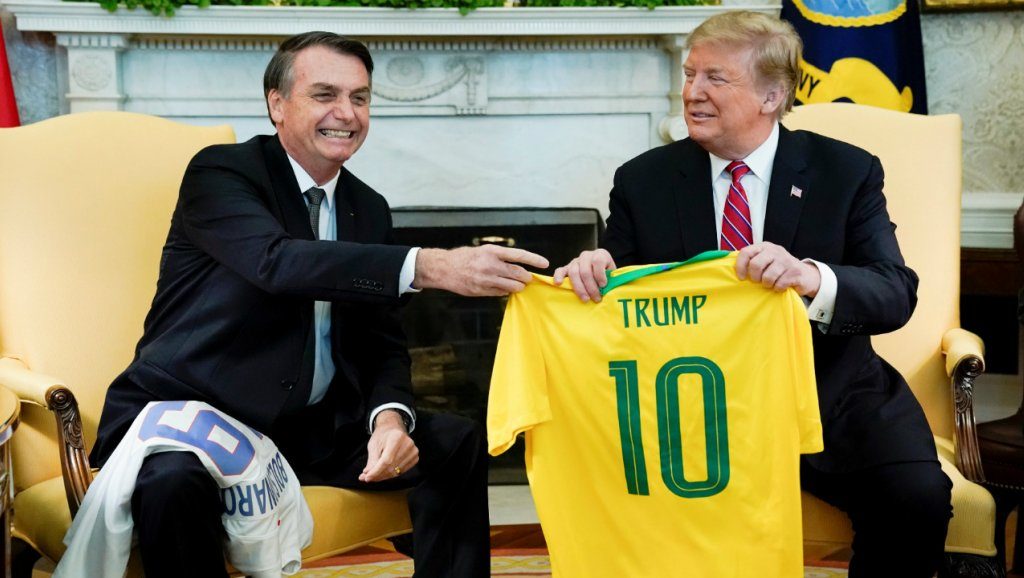
Alleging a “witch hunt” in the trial of Jair Bolsonaro, and citing threats to freedom of expression on platforms like X and Truth Social, Trump’s unilateral tariff escalation represents a structural shift in U.S. trade policy, where economic sanctions become instruments of political coercion whose purpose is very different from trade rebalancing.
Armando Alvares Garcia Junior, Professor of International Law and International Relations, UNIR – International University of La Rioja
Donald Trump has just unleashed a new wave of global economic pressure by announcing 50% tariffs on Brazilian products, alleging a “witch hunt” in the trial of Jair Bolsonaro, and alleging threats to freedom of expression on platforms like X and Truth Social. In a letter sent to President Lula and eight other countries, he outlines his offensive, marking a significant step forward in the use of trade instruments to interfere in the judicial decisions and domestic policies of sovereign nations.
Trump invoked Section 301 of U.S. law to justify possible additional sanctions, signaling that the tariff shock could go beyond the announced 50% . Shortly after the announcement, the real fell about 3%, reflecting the immediate impact of the threats.
“Unparalleled interference”
President Lula’s response was immediate: he called the announcement “unparalleled interference”. He reiterated that Brazil would apply the Economic Reciprocity Law, passed in April, to respond to any unilateral tariff increases by other countries. Minister Haddad emphasized that the alleged trade justification is false, as the US has maintained a surplus of approximately US$410 billion with Brazil for the past 15 years.
From a legal standpoint, the measure directly conflicts with the parameters of international law. The World Trade Organization (WTO) requires that tariffs be implemented based on legitimate economic grounds, not as retaliation for judgments on domestic matters by the judiciary of a sovereign country. The UN Charter, in Article 2.4, prohibits interventions (including those of an economic nature) that compromise national sovereignty.
The situation is aggravated by the paralysis of the WTO’s Appellate Body, which has been blocked by the US since 2019, weakening members’ ability to resolve disputes legally. This situation creates an environment conducive to unilateral and tariff-based actions, eroding the predictability of the international trading system.
Economically, the export sector—especially coffee, oranges, footwear, steel, and meat—is already projecting negative effects, including inflation, loss of competitiveness, and disruption of global supply chains. However—and this will be felt by U.S. consumers and voters—it is estimated that one-third of Brazilian coffee and half of Brazilian orange juice are exported to the U.S.
Sanctions as an instrument of coercion
Domestically, the measure deepens ideological divisions. Pro-Bolsonaro voters celebrated Trump’s support, while foreign analysts and businesspeople define the tactic as modern economic imperialism, detrimental to the global trade order.
Globally, Trump also targeted the BRICS countries, threatening additional 10% tariffs on governments aligned with the bloc’s policies, intensifying geopolitical tensions. This escalation represents a structural shift in U.S. tariff policy, where economic sanctions become instruments of political coercion, whose purpose is very different from trade rebalancing.
Brazil currently has three main paths:
- Respond with retaliation via economic reciprocity ;
- Seek a solution in the WTO, even if this avenue is limited, perhaps resorting to the Multiparty Arbitration Mechanism (MPIA) created as an alternative to the traditional appellate body.
- Intensify its presence and diplomatic “pressure,” both within Mercosur and BRICS, and by deepening its alliance with the European Union, as a way of reducing structural dependence on the United States.
Trump’s threat poses an aggressive test of Brazilian sovereignty and the multilateral system . Brazil’s response should not be limited to economic defense, as reaffirming respect for equality, good faith, and international cooperation —fundamental principles for preserving a rules-based global order—is paramount. The dynamics of the American Wild West should not apply here.




Comments are closed.